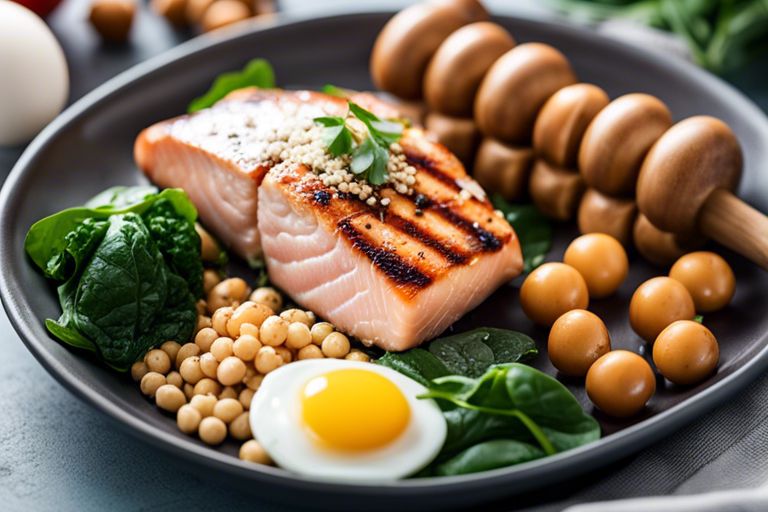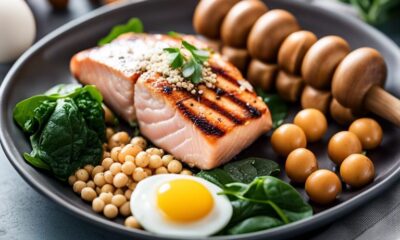Health & Society
Spanish Psychiatrists must withstand the criticism of CCHR, no matter how harsh it may be, concludes the court
This is a translation of the article originally published in Spanish by Carlos Berbell, from the specialized legal portal CONFILEGAL, the most renowned and read legal newspaper in Spain.
Freedom of expression, provided that it serves the general interest and does not use manifestly injurious, vexatious or unnecessary expressions, includes criticism of the conduct of the person against whom it is directed, even if such criticism is unsavoury and may annoy, disturb or disgust.
The rights to freedom of expression and information are essential as a guarantee for the formation of free public opinion. This is a requirement for pluralism, tolerance and a spirit of openness, without which there can be no democratic society.
This is the conclusion reached by the court of the Fourteenth Section of the Provincial Court of Madrid in its appeal ruling, which overturned the lower court’s decision, acquitting the associations Citizens Commission on Human Rights International (CCHR) – registered in California, USA – and the Citizens Commission on Human Rights of Spain (CCDH) – registered in Spain (both of the Church of Scientology) of the accusation of unlawful interference with the honour of Spanish psychiatrists.
“Church whose axis revolves around Dianetics, which is considered to be a true science of mental health distinct from psychiatry, against which it has fought, and by the psychiatrist Thomas Szasz who was professor emeritus of psychiatry at Syracuse University in New York; recognised critic of the moral and scientific foundations of psychiatry and one of the leading figures of anti-psychiatry“, says the court ruling, dated 10 February, to which Confilegal has had access.
According to the magistrates (judges) Maria del Rosario Campesino Temprano, Juan Uceda Ojeda -rapporteur- and Jesus Alemany Eguidazu, the Spanish Society of Psychiatry (SEP), the plaintiff, is obliged to bear the criticisms made against it, however harsh they may be.
“We do not believe that we can accept that the right to honour should prevail when confronted with the right to freedom of expression in the field of health,” the court states in its ruling.
There has been, therefore, neither an illegitimate intrusion nor an injury to the honour of all psychiatrists who are members of the SEP, says the ruling of the Provincial Court of Madrid, as the SEP claimed.
Therefore, Article 20 of the Spanish Constitution must prevail over Article 18.
And it refers to the jurisprudence of the Spanish Constitutional Court contained in judgments 216/2013, of 19 December, and judgments of the Civil Chamber of the Spain Supreme Court 375/2013, of 5 June, 5/2014, of 14 January, and 423/2014, of 30 July.
The American association was represented by Professor of Procedural Law at the Carlos III University, Victor Moreno Catena. The Spanish association was represented by lawyers Isabel Ayuso Puente and Gregorio Arroyo Hernansanz. And the SEP by Carles Vendrell Cervantes, of Uria Menendez.
Both associations had previously been condemned by the head of the 59th Court of First Instance of Madrid on 19 November 2021, who had ordered the banning of publications on the websites www.cchr.org and www.ccdh.es in which they harshly criticise psychiatrists.
A ruling that has been overturned by this one.
FREEDOM OF EXPRESSION MUST PREVAIL
The tribunal of the Madrid Provincial Court analyses the six articles which, according to the SEP, would support the alleged unlawful interference with the right to honour of all its members.
The first says that psychiatrists are psychopaths because their treatments damage the body and mind and degrade the person. They also claim that psychiatry is a pseudo-science that does not cure mental illness and that its treatments, often imposed without the consent of those concerned, seriously harm people.
“We consider that, in the context of the anti-psychiatric theories followed by the defendant entities, which we must assume is well known to all psychiatrists, the phrase referred to by the plaintiff association cannot harm the honour of the professionals and that, in any case, it would be protected by the right to freedom of expression,” says the ruling.
In the second, it says that it is not the pharmaceutical companies and doctors but psychiatrists and psychiatry that are behind it all.
“Pharmaceutical companies rely on the authority of the experts of the mind. An authority that is false because an authority or expert solves problems of their profession, while these only cover up with their treatments the manifested symptoms. They put the consciousness of the person to sleep; either they depress it or excite it with powerful harmful drugs that force, like poisons, the body and the mind into deterioration.”.
The court seems to be very clear in its assessment: “Some of the phrases or expressions that are pointed out as offensive could imply that in the conduct of psychiatrists economic profit takes precedence over the curative and therapeutic purpose, but we do not believe that we can accept that the right to honour should prevail when confronted with the right to freedom of expression in the field of health“.
The third says of psychiatry that it is the story of a failure. “Psychiatrists continue to have a rather unfavourable reputation among medical colleagues; they are labelled as bumbling and second-rate” and “psychiatry is probably the most destructive force that has affected society in the last 60 years,” according to Edward Shorter and Dr Thomas Szasz.
The alleged offence, says the court, “stems from an undeniable assertion that forced and involuntary institutionalisation and treatment without the consent of the patients is still practised, and from statements made, as stated in the article itself, by the medical historian Edward Shorter in his book “A History of Psychiatry”, and by Thomas Szasz, one of the founders, as we have already said, of the Citizens Commission on Human Rights“.
“We find no reason to consider that this publication is an unlawful interference with the right to honour of SEP members,” he adds.
“We believe that the statements contained in the article are mere consequences or deductions of principles already defended by the various anti-psychiatry currents that exist and which we believe are well known to the members of the plaintiff association”.
Fourth article. “Our world caught up in drugs“. In the plaintiff’s opinion, the plaintiff’s honour is damaged when it is claimed that psychiatrists’ diagnoses are fraudulent and that they are intentionally used to ‘deceive’ people who are in perfectly good mental health, in order to be able to prescribe them psychiatric drugs“.
In this piece, as in the second of the publications dealt with by the three magistrates, “the work of psychiatrists is again criticised by denying them authority and the efficacy of their treatments and by the use of drugs to treat all kinds of so-called mental disorders which are on the increase and which have allowed an unacceptable extension of pharmaceutical products to different spheres and people“.
“If we can find words that could be considered offensive to some doctors by accusing them of a clear abandonment of the curative purpose, but from a reading of the whole article it can easily be seen that, perhaps using harsh and acid terms, it is all part of the criticism of the social disorders in all fields of life that, in the opinion of the author of the publication, are produced by the drugs. Again, we believe that the collision between fundamental rights should be tilted towards freedom of expression“, they stress.
The following two texts refer to two open letters. The first is to primary care physicians and the second to medical students.
The first accuses psychiatrists of using a plague of drugs that cause a mental holocaust and accuses them of failing to comply with the Hippocratic oath.
The article again stresses the same theme, that the treatments with psychotropic drugs, which have been extended to general practitioners, cause serious addictive effects and the annihilation of the mental health, addictive effects and mental holocaust, with no appreciable results.
But the judges underline that it is addressed to primary care doctors, not psychiatrists, “so that no attack on the honour of SEP members can be seen“.
PSYCHIATRISTS CRITICISED FOR NOT COMPLYING WITH THE HIPPOCRATIC OATH
In the open letter to the students, it is pointed out that psychiatrists are also accused of not complying with the Hippocratic oath.
The medical doctor author of the article, a member of the Citizens’ Commission on Human Rights, explains the reasons why he considers that the speciality of psychiatry should not be chosen, as he considers that it lacks a scientific basis; the biological tests to prove a mental illness are merely collaborative, the diagnoses are fundamentally theoretical, they are not rigorously validated and have definitions that are too broad.
In this letter, the court refers, “we only observe a new criticism of psychiatry and the use of pills in its treatments, which should not surprise the plaintiff, knowing its origin, and we do not observe sentences or expressions that involve an obvious attack or illegitimate intrusion into the honour of psychiatrists, an attack that if it had existed would be duly protected by freedom of expression, as we have been referring to when analysing previous publications“.
The latest text, entitled “Psiquiatria, pseudociencia y sanidad pubica” (Psychiatry, pseudoscience and public health), authored by lawyer Luis de Miguel Ortega, is said to contain a set of insults and disqualifications directed against psychiatrists that should be considered “inadmissible”.
“The assertions contained in the article are mere consequences or deductions of principles already defended by the various anti-psychiatry currents that exist and which we believe are perfectly well known to the members of the plaintiff association”.
Sentences such as “Psychiatry serves as a social control machine that sometimes becomes an agent of social and political revenge“; “The psychiatrist is the one who, in an absolutely illegal way, sends a fax to the Court to request an involuntary commitment, for false reasons, without the necessary urgency, in the face of less restrictive measures and even for ego reasons such as ‘he has not come to my surgery for months‘”; or “There is an undetermined number of coercive abortions in Spain in the hands of psychiatrists who do not want citizens to see the catastrophe that happens to a child when it is born after having been suffering from the psychiatric medication taken by the mother“.
On what the court concludes: “We continue to believe that we are faced with a conflict in which freedom of expression must prevail, we think that the statements contained in the article are mere consequences or inferences of principles already defended by the various anti-psychiatry currents that exist and which we believe are perfectly well known to the members of the plaintiff association. Likewise, the most acidic and vexatious expressions are directly linked to the legitimate objective, which could be protected by freedom of expression“.
The costs are to be borne by the SEP, which can still appeal to the Supreme Court.
Health & Society
The Best Foods To Eat For Muscle Recovery And Growth

Overwhelmed with the endless options in the grocery store? In the context of fueling your muscles for recovery and growth, the right foods can make all the difference. Incorporating protein-packed choices like chicken, eggs, and Greek yogurt into your diet can help repair and build muscle tissue. Don’t forget about healthy fats from sources like avocados and nuts to support muscle function. Amp up your meals with colorful fruits and vegetables for added antioxidants to reduce inflammation. Be mindful of, what you eat plays a significant role in your fitness journey.
1. Protein-rich foods aid muscle recovery and growth.
2. Complex carbohydrates fuel muscles and replenish glycogen stores.
3. Omega-3 fatty acids reduce inflammation and support muscle repair.
4. Colorful fruits and vegetables provide imperative vitamins and minerals.
5. Greek yogurt promotes muscle protein synthesis.
6. Hydration with water is crucial for muscle recovery.
Macronutrients for Muscle Recovery and Growth
The Importance of Protein
With protein being the building block of muscle tissue, it plays a crucial role in muscle recovery and growth. When you consume protein-rich foods, you provide your body with the important amino acids needed to repair and build muscle fibers. Aim to include a source of lean protein in every meal to support your muscle-building goals.
The Role of Carbohydrates
For muscle recovery and growth, carbohydrates are important as they replenish glycogen stores that are depleted during intense workouts. Including complex carbohydrates such as whole grains, fruits, and vegetables in your diet provides you with sustained energy to fuel your workouts and support muscle recovery.
It’s important to note that not all carbohydrates are created equal. Opt for nutrient-dense sources like sweet potatoes, quinoa, and oats, which provide vitamins, minerals, and fiber along with energy.
Healthy Fats for Muscle Function
On top of protein and carbohydrates, healthy fats are also important for muscle function. Foods rich in omega-3 fatty acids such as salmon, flaxseeds, and walnuts help reduce inflammation in the body, which can aid in recovery. Including sources of healthy fats in your diet supports overall muscle health and function.
Plus, don’t skimp on fats as they are crucial for absorbing fat-soluble vitamins like vitamins A, D, E, and K, which are important for overall health and muscle recovery.
Post-Workout Nutrition
Little do you know, post-workout nutrition is a crucial aspect of your fitness journey. What you eat after a workout can significantly impact your muscle recovery and growth. Paying attention to your post-workout nutrition can help you maximize the benefits of your hard work at the gym.
Timing is Everything
PostWorkout: The window of opportunity for optimal muscle recovery and growth is within the first 30 minutes to an hour after your workout. During this time, your body is primed to absorb nutrients and replenish glycogen stores. Make sure to have a post-workout meal or snack ready to consume soon after your training session to kickstart the recovery process.
What to Eat After a Workout
To: After a strenuous workout, your body needs a combination of protein and carbohydrates to repair and replenish muscles. Include sources of lean protein such as chicken, fish, or tofu, along with complex carbohydrates like whole grains, sweet potatoes, or fruits. This nutrient combination will help promote muscle protein synthesis and glycogen resynthesis, aiding in muscle recovery and growth.
Another imperative factor to consider for muscle recovery is hydration. Dehydration can hinder your body’s ability to repair and rebuild muscle tissue. Aim to drink plenty of water throughout the day, especially before and after your workout, to support optimal recovery.
Hydration for Recovery
On: Hydrating properly after a workout is key to replenishing fluids lost through sweating and supporting muscle recovery. In addition to water, consider incorporating electrolyte-rich beverages or coconut water to replenish vital minerals lost during exercise. Proper hydration will help you recover faster and perform better during your next workout.
Protein-Rich Foods for Muscle Growth
Keep your muscles fueled and growing strong with protein-rich foods that are necessary for muscle recovery and growth. Including a variety of sources in your diet can help you reach your fitness goals faster.
Lean Meats: Chicken, Turkey, and Fish
An excellent source of high-quality protein, lean meats like chicken, turkey, and fish are necessary for muscle building. They are low in saturated fats and rich in nutrients that support muscle recovery and growth. Including these lean meats in your meals can help you maintain a lean physique while providing the necessary protein for muscle repair and growth.
Eggs: The Ultimate Muscle-Building Food
Fish not only packed with protein but also contain necessary amino acids that are crucial for muscle repair and growth. The high-quality protein found in eggs makes them a staple in many bodybuilders’ diets. Including eggs in your diet can help you meet your daily protein requirements for optimal muscle-building results.
MuscleBuilding: Eggs are versatile and easy to include in your meals, whether you prefer them boiled, scrambled, or as part of a protein-rich omelet. Make eggs a regular part of your diet to support your muscle-building goals.
Legumes: Beans, Lentils, and Peas
Food rich in protein and fiber, legumes like beans, lentils, and peas are excellent plant-based sources of protein for muscle growth. They also contain necessary vitamins and minerals that support overall health and well-being. Including a variety of legumes in your meals can help you increase your protein intake and support muscle recovery after intense workouts.
The fiber content in legumes can also aid in digestion and help you feel full longer, making them a great addition to your diet if you are looking to build muscle while maintaining a healthy weight.
Complex Carbohydrates for Energy
Your muscle recovery and growth heavily rely on the fuel you provide your body. Consuming complex carbohydrates is imperative for sustained energy levels during your workouts and aiding in muscle repair post-exercise.
Whole Grains: Brown Rice, Quinoa, and Oats
The whole grains like brown rice, quinoa, and oats are excellent sources of complex carbohydrates that release energy slowly, providing a steady stream of fuel for your muscles. These grains are also packed with fiber, vitamins, and minerals, aiding in digestion and overall health.
Fruits: Bananas, Berries, and Citrus
Grains are not the only source of complex carbohydrates for your muscle recovery. Fruits such as bananas, berries, and citrus fruits are rich in carbohydrates and imperative vitamins and minerals that help replenish glycogen stores in muscles, promoting faster recovery and growth.
Additionally, fruits are high in antioxidants, which can reduce inflammation and oxidative stress caused by intense workouts, further supporting muscle repair and overall health.
Vegetables: Leafy Greens, Broccoli, and Sweet Potatoes
Whole grains and fruits are vital, but don’t overlook the power of vegetables in your diet for muscle recovery. Incorporating leafy greens like spinach, nutrient-dense broccoli, and complex carbohydrates-rich sweet potatoes can provide your body with imperative vitamins, minerals, and antioxidants needed for optimal muscle function and growth.
Moreover, vegetables are low in calories but high in nutrients, making them a perfect addition to your meals for supporting muscle recovery without compromising your overall calorie intake.
Celebrate the diversity of Quinoa, a complete protein source and complex carbohydrate that is gluten-free and rich in fiber. It helps in regulating blood sugar levels, aiding in sustained energy release needed for your workouts and muscle recovery.
Healthy Fats for Hormone Regulation
Despite the common misconception that all fats are bad for you, incorporating healthy fats into your diet is vital for hormone regulation, especially when it comes to muscle recovery and growth. Healthy fats play a crucial role in supporting overall health and maintaining optimal hormone levels, which are vital for muscle building and repair.
Nuts and Seeds: Almonds, Walnuts, and Chia Seeds
An excellent source of healthy fats to include in your diet is nuts and seeds such as almonds, walnuts, and chia seeds. These superfoods are packed with omega-3 fatty acids, which are known for their anti-inflammatory properties and hormone-regulating effects. By adding a handful of nuts or seeds to your meals or snacks, you can support your muscle recovery and growth while keeping your hormones in check.
Avocados: The Ultimate Healthy Fat Source
One of the best sources of healthy fats that you can incorporate into your diet is avocados. Avocados are rich in monounsaturated fats, which are vital for hormone production and regulation. Additionally, they are packed with fiber and various vitamins and minerals that support overall health. Adding avocados to your salads, sandwiches, or as a topping for your meals can help promote muscle recovery and growth.
Source: Avocados are also a great source of potassium, which is crucial for muscle function and recovery. Including avocados in your diet can help replenish electrolytes lost during intense workouts, supporting muscle recovery and growth.
Fatty Fish: Salmon, Tuna, and Mackerel
Fatty fish such as salmon, tuna, and mackerel are excellent sources of omega-3 fatty acids, which are vital for hormone regulation and reducing inflammation in the body. These healthy fats not only support muscle recovery and growth but also help improve overall heart health and brain function. Including fatty fish in your diet a few times a week can have significant benefits for your hormones and muscle-building efforts.
Nuts: To ensure you are getting an adequate amount of healthy fats in your diet, try incorporating a variety of nuts, seeds, avocados, and fatty fish into your meals. These foods not only taste delicious but also provide vital nutrients that support your muscle recovery and growth goals.
Meal Frequency and Timing
Once again, meal frequency and timing play a crucial role in supporting muscle recovery and growth.
Eating for Muscle Recovery: How Often and When
Eating at regular intervals throughout the day can help fuel your muscles and provide a steady supply of nutrients for optimal recovery. Aim to have a balanced meal or snack every 3-4 hours to keep your energy levels stable and support muscle repair.
The Importance of Breakfast for Muscle Growth
For muscle growth, breakfast is an necessary meal that sets the tone for the rest of the day. Starting your day with a nutritious breakfast helps kickstart your metabolism and provides your muscles with the necessary nutrients after a night of fasting. Include sources of protein, carbs, and healthy fats to fuel your body for the day ahead.
Muscle growth is most active during sleep, and breakfast helps replenish glycogen stores and provides amino acids for muscle repair. Skipping breakfast can lead to muscle breakdown and sluggishness throughout the day, hindering your progress in the gym.
Snacking for Muscle Recovery
Snacking strategically between meals can support muscle recovery by preventing energy crashes and keeping your metabolism revved up. Choose nutrient-dense snacks like Greek yogurt, nuts, or a protein shake to provide your muscles with a quick source of energy and amino acids.
Muscle recovery is a continuous process, and snacking on the right foods can help maintain a constant supply of nutrients for your muscles to repair and grow. Avoid sugary snacks and opt for protein-rich options to support your fitness goals effectively.
Supplements for Muscle Recovery and Growth
After a strenuous workout, your muscles need proper nutrition to recover and grow stronger. In addition to a well-rounded diet, supplements can play a crucial role in supporting your muscle-building goals. Here are some important supplements to consider incorporating into your routine:
Protein Powder: Whey, Casein, and Plant-Based Options
Muscle protein synthesis is important for muscle recovery and growth, and protein powders can be a convenient way to increase your daily protein intake. Whey protein is fast-absorbing and ideal for post-workout recovery, while casein protein is slower-digesting and great for supporting muscle repair overnight. For those following a plant-based diet, plant-based protein powders like pea, hemp, or rice protein can be excellent alternatives.
Creatine: The Ultimate Muscle-Building Supplement
Supplementing with creatine is a popular choice among athletes and fitness enthusiasts for its proven ability to enhance strength, power, and muscle size. A daily creatine supplement can increase your body’s phosphocreatine stores, allowing for more energy production during high-intensity workouts. This can lead to greater muscle gains and improved performance in the gym.
A proper creatine supplementation protocol typically involves a loading phase to saturate your muscles with creatine, followed by a maintenance phase to keep levels elevated. Remember to drink plenty of water while taking creatine to ensure optimal hydration levels.
Branched-Chain Amino Acids (BCAAs) for Recovery
On your quest for muscle recovery, don’t overlook the importance of Branched-Chain Amino Acids (BCAAs). These important amino acids, including leucine, isoleucine, and valine, play a significant role in protein synthesis and muscle repair. Taking BCAAs before, during, or after your workout can help reduce muscle soreness, decrease exercise fatigue, and support muscle growth. Plus, they can be a flavorful addition to your water during workouts!

Hydration for Muscle Recovery
To optimize your muscle recovery and growth, proper hydration is key. Dehydration can hamper your performance and delay the healing process of your muscles after a tough workout. Here are some tips to ensure you are staying properly hydrated for muscle recovery.
Water: The Ultimate Recovery Drink
On top of your list should be water, the ultimate recovery drink. Staying hydrated is important for maintaining optimal muscle function. Drinking enough water helps transport important nutrients to your muscles, aids in digestion, and regulates your body temperature, all of which are crucial for muscle recovery.
Electrolytes: Why You Need Them
Muscle recovery is also dependent on maintaining the right balance of electrolytes in your body. These minerals, such as sodium, potassium, magnesium, and calcium, play a vital role in muscle contractions, nerve function, and fluid balance. When you sweat during intense workouts, you lose electrolytes that need to be replenished to support muscle recovery.
Plus, electrolytes help your body absorb and retain the water you drink, ensuring you stay properly hydrated. Including sources of electrolytes in your post-workout routine can help accelerate muscle recovery and prevent cramping and fatigue.
Coconut Water: A Natural Recovery Drink
One excellent source of both hydration and electrolytes is coconut water. It is a natural and refreshing way to replenish electrolytes lost during exercise, making it a great post-workout beverage choice. Coconut water is rich in potassium, magnesium, and other important minerals, making it an ideal option to support muscle recovery and hydration.
Foods to Avoid for Muscle Recovery and Growth
To make the most out of your muscle recovery and growth, it’s crucial to pay attention not only to what you should eat but also to what you should avoid. In your journey to building stronger muscles, steering clear of certain foods can help boost your progress and performance. For a comprehensive guide on the best foods to eat for muscle recovery and growth, check out the 10 Best Muscle Recovery Foods recommended by experts.
Processed Meats: Hot Dogs, Sausages, and Bacon
Any fitness enthusiast knows that processed meats like hot dogs, sausages, and bacon are convenient but **not** the best choice for muscle recovery and growth. These items are typically high in saturated fats, sodium, and additives that can hinder your progress. Consuming **strong** levels of processed meats can lead to **inflammation** in the body, which ultimately impacts your recovery time and muscle development.
Sugary Drinks: Soda, Sports Drinks, and Juice
On your quest for muscle recovery and growth, it’s necessary to be mindful of the beverages you consume. **Sugar**-laden drinks like soda, sports drinks, and juice can sabotage your efforts. These beverages are full of **empty** calories that provide little to no nutritional value. **Regular** consumption of sugary drinks can spike your blood sugar levels, leading to energy crashes and **diminished** performance during your workouts.
Understanding the detrimental effects of sugary drinks on your muscle recovery and growth is crucial. **Excess** sugar intake can hinder protein synthesis, which is necessary for building and repairing muscles. Opting for **hydration**-boosting options like water, coconut water, or **unsweetened** herbal teas is a smarter choice to support your fitness goals.
Refined Carbohydrates: White Bread, Pasta, and Sugary Snacks
Refined carbohydrates, including white bread, pasta, and sugary snacks, can impede your muscle recovery and growth **progress**. These items are **high** in simple sugars and low in fiber and **nutrients**, causing your blood sugar levels to fluctuate **rapidly**. **Consuming** refined carbohydrates can lead to increased **fat** storage and reduced energy levels, hindering your workout performance in the long run.
Recovery from intense workouts **can** be optimized by choosing complex carbohydrates like whole grains, quinoa, and **sweet** potatoes. These options provide **sustained** energy release and are rich in **nutrients** that support muscle repair and growth. **By** prioritizing whole, unprocessed foods, you can enhance your muscle recovery and **achieve** your fitness goals more effectively.
Meal Planning for Muscle Recovery and Growth
Many athletes and fitness enthusiasts know that proper nutrition is key to muscle recovery and growth. Incorporating the right foods into your diet can make a significant difference in how your body repairs and builds muscle after intense exercise. According to 11 Best Muscle Recovery Food and Drinks, some of the top foods for muscle recovery include salmon, berries, sweet potatoes, and leafy greens.
Creating a Balanced Meal Plan
Meal planning is vital for maximizing muscle recovery and growth. You need to ensure that your meals are balanced with the right mix of protein, carbohydrates, and healthy fats to support your fitness goals. Aim to include a variety of nutrient-dense foods in your meals to provide your body with the necessary fuel for recovery and growth.
Meal Prep: Tips and Tricks
Growth starts in the kitchen, and meal prep can be a game-changer for your muscle recovery and growth goals. By taking the time to plan and prepare your meals in advance, you can ensure that you have healthy options readily available when you need them. To streamline the process, consider these meal prep tips:
- Batch cook protein sources like chicken, tofu, or lentils.
- Chop and wash fruits and vegetables for easy snacking.
- Invest in quality meal prep containers to keep your food fresh.
Recognizing the importance of meal prep in your fitness journey can help set you up for success in reaching your muscle recovery and growth goals.
Eating Out: Healthy Options for Muscle Recovery
This is where many people struggle with maintaining their nutrition goals. When you find yourself dining out, it can be challenging to make healthy choices that support your muscle recovery. However, with a little planning and awareness, you can still enjoy a meal out while staying on track with your fitness goals.
Recovery: Remember that the choices you make when eating out can impact your muscle recovery and growth progress. Look for options that include lean protein, whole grains, and plenty of vegetables to support your body’s needs. Balancing indulgences with nutrient-dense choices is key to maintaining a healthy eating plan even when dining out.
Common Mistakes to Avoid
All successful fitness journeys require not only proper nutrition and training but also avoiding common mistakes that can hinder your progress. Here are some pitfalls to watch out for:
Not Eating Enough Protein
Protein is crucial for muscle recovery and growth. One common mistake is not consuming enough protein in your diet. Protein helps repair muscle tissue that is broken down during workouts, aiding in muscle recovery and growth. Make sure to include protein-rich foods such as lean meats, eggs, dairy, legumes, and protein supplements in your meals to support your muscle-building goals.
Not Drinking Enough Water
Drinking an adequate amount of water is necessary for overall health and performance. Dehydration can lead to decreased exercise performance, muscle cramps, and hindered recovery. Aim to drink at least 8-10 glasses of water a day, and more if you’re exercising intensely or in hot weather. Proper hydration supports nutrient transport, joint lubrication, and temperature regulation in the body.
Another important aspect to consider is that other beverages like caffeinated drinks, alcohol, or sugary drinks can contribute to dehydration, so limit your intake of these beverages and prioritize water consumption.
Not Getting Enough Rest and Recovery
Mistakes can also be made when it comes to rest and recovery. Your muscles need time to repair and grow stronger after intense workouts. Not allowing enough time for rest can lead to overtraining, which can cause muscle fatigue, decreased performance, and an increased risk of injury. Make sure to prioritize quality sleep, rest days, and recovery activities like stretching or foam rolling to support your muscle growth and overall well-being.
Getting enough rest and recovery is just as important as your workouts and nutrition in achieving your fitness goals. Listen to your body and give yourself the time to recover adequately between training sessions. This way, you’ll ensure that you’re making progress in a sustainable and healthy manner.
By avoiding these common mistakes and focusing on proper nutrition, hydration, and recovery, you’ll be on the right path to maximizing your muscle growth and achieving your fitness goals.
Special Considerations for Vegetarians and Vegans
Now, when it comes to muscle recovery and growth, it’s important for vegetarians and vegans to pay attention to their protein intake. While meat is a primary source of protein for many athletes, you can still meet your protein needs through plant-based sources. Check out the 11 Best Foods for Muscle Recovery – Best Post Workout … article to learn more about incorporating plant-based proteins into your diet.
Plant-Based Protein Sources
For vegetarians and vegans, plant-based protein sources like lentils, chickpeas, quinoa, tofu, tempeh, and edamame can be excellent choices to support muscle recovery and growth. These protein-rich foods can provide you with the important amino acids your body needs to repair and build muscle after your workouts.
Iron-Rich Foods for Vegetarians and Vegans
Sources
This is important because iron is crucial for oxygen transport in the body, which is important for overall performance and muscle growth. Plant-based sources of iron include lentils, spinach, tofu, quinoa, and fortified cereals. Incorporating these foods into your diet can help prevent iron deficiency and support your fitness goals.
Omega-3 Rich Foods for Vegetarians and Vegans
IronRich
A diet rich in omega-3 fatty acids can help reduce inflammation, improve muscle recovery, and support overall health. Sources of omega-3s for vegetarians and vegans include chia seeds, flaxseeds, walnuts, and algae-based supplements. Adding these foods to your meals can provide you with the important fats your body needs for optimal performance in the gym.
Putting it all Together: A Sample Meal Plan
Unlike your regular meals, when it comes to maximizing muscle recovery and growth, what you eat plays a crucial role. Here’s a sample meal plan that you can follow to help fuel your body for optimal performance and results.
Breakfast Options
Meal 1: Start your day with a balanced breakfast that includes protein-rich foods such as eggs, Greek yogurt, or a protein smoothie. Pair it with complex carbohydrates like oatmeal, whole grain toast, or fruit for sustained energy throughout your morning.
Lunch and Snack Options
Putting together a balanced lunch is crucial for muscle recovery and growth. Opt for a meal that includes lean protein sources like chicken, turkey, tofu, or legumes. Pair it with fiber-rich carbs such as quinoa, brown rice, or sweet potatoes, and don’t forget to add a side of healthy fats like avocado, nuts, or olive oil to keep you satisfied.
It’s crucial to fuel your body with nutrient-dense snacks throughout the day to support your muscle recovery and growth. Choose options like Greek yogurt with berries, a handful of almonds, or a protein bar to keep your energy levels stable between meals.
Dinner Options
Dinner: For your last meal of the day, focus on high-quality protein sources such as salmon, lean beef, or lentils to support your muscles’ repair and growth overnight. Pair it with a generous serving of vegetables and leafy greens for added vitamins, minerals, and antioxidants to aid in recovery.
Understanding portion control is also important to ensure you’re not overeating, which can hinder your progress. Play around with your meal plan and adjust portion sizes to fit your individual needs and preferences. Be mindful of, consistency is key when it comes to seeing results, so stick to your meal plan and stay dedicated to your fitness goals.
Summing up
Drawing together all the information in this article, you now have a better understanding of the best foods to eat for muscle recovery and growth. Remember to include protein-rich foods like chicken, fish, yogurt, and eggs in your diet to repair and build muscles. Don’t forget to incorporate complex carbohydrates such as oats, sweet potatoes, and quinoa to fuel your workouts and aid in recovery. Additionally, adding fruits, vegetables, and healthy fats like nuts and avocados will provide crucial nutrients and support overall health.
By making smart food choices and focusing on a balanced diet, you can optimize your muscle recovery and growth potential. Fuel your body with the right nutrients, stay hydrated, and listen to your body’s signals to ensure you are giving it the support it needs to thrive. With a combination of nutritious foods and a consistent workout routine, you’ll be well on your way to achieving your fitness goals and building strong, healthy muscles.
Health & Society
One look at a man’s hands is enough to read his character like an open book

There are many tests that determine personality type. But they all usually require answers to many questions.
And how to find out about the capabilities, talents, attitude to life, work, family, strengths and weaknesses of the interlocutor without bothering him with questions? Impossible? As much as possible and even without a magic crystal! After all, the shape of a person’s hands can say a lot.
Human hand shape
The ring finger is longer than the index finger:
Such people willingly come into contact with others and easily find a common language with them due to their natural delicacy.
Sociability helps them to behave calmly in any situation. Therefore, both in a close company and in a large team, they often become undisputed leaders.
The ring finger is shorter than the index finger:
Those with short ring fingers are often introverted. They really don’t like crowds of people, they prefer solitude and silence. Individualists, these people still know how to have fun and enjoy socializing. But only in a comfortable environment.
It is said that women with an index finger longer than the ring finger are more prone to cheating than others and are more popular with men. And these are not empty stories.
Biologists from Oxford published a study, according to which this is due to the increased production of the hormone estrogen.
Ring finger and index finger are the same length:
People with a similar structure of the fingers are distinguished by a rare peacefulness. They are characterized by discipline, organization and a desire for order. By their nature, these true pacifists are very kind, but it is better not to anger them. In fact, as you know, devils are found in a still pool.
Palm shape:
Those with a square palm love precision in everything and usually prefer to do things where there are clear instructions. They have a strong will and are difficult to manipulate from the outside.
A narrow and elongated palm indicates that a person has a fragile mental organization and easily falls into depression.
An elongated palm with short fingers indicates people with a huge supply of energy, unstoppable passions and a strong ego. They are also often distinguished by their extreme directness and lack of tact.
Illustrative Photo by wal_ 172619: https://www.pexels.com/photo/lines-on-hand-palm-20680339/
Health & Society
Why is writing by hand important?

Has the value of writing by hand gone forever? Not according to new research examining the cognitive benefits of pen and paper.
When was the last time we recorded something by hand? For many of us, writing by hand may have become a rare, if not abandoned, practice. Being able to take notes on phones or enter ideas using keyboards is usually faster and easier.
For some professional writers, the idea that a pen can aid creativity and thinking will not be news. Despite the digital turn, some writers continue to use handwritten text as a way to increase their productivity. However, the scientific world has only recently begun to grasp the supposed benefits of this practice, but the first results are already convincing. So why is it important to write by hand?
The answer seems to be related to the relative complexity of the action compared to typing on a computer. Writing by hand requires more movement, more skill and coordination, and greater visual attention, and therefore encourages different parts of the brain to come together to turn the shapes in our heads into something visible on the page.
Still, typing on a computer is not useless. We can still make such connections and integrate information, but we must do so more consciously. And just because handwriting seems more useful for remembering and processing information doesn’t mean we should ditch our digital tools. Some studies even show that simply using a pen on the screen can be just as beneficial, since the writing movement is important, not the medium, Science Alert reports.
-

 Sports2 days ago
Sports2 days agoMercedes celebrates Monza: “Goosebumps.”
-

 Politics6 days ago
Politics6 days agoEU Intensifies Pressure: Six-Month Extension of Russia Sanctions
-

 Health & Society5 days ago
Health & Society5 days ago7 Superfoods That Will Boost Your Fitness Results
-

 EU & the World5 days ago
EU & the World5 days ago‘HSM’ Alum Bart Johnson Defends Sister-In-Law Blake Lively Amid Online Backlash
-

 Sports5 days ago
Sports5 days agoFiorentina miracle: nine qualify for the Conference League rounds
-
Travel4 days ago
Venice 2024 review: ‘Babygirl’ – Nicole Kidman shines in sex-positive BDSM drama
-

 Sports24 hours ago
Sports24 hours agoCharles Leclerc at Monza outperformed even Michael Schumacher.
-

 Health & Society4 days ago
Health & Society4 days agoMarathon of documentaries on Drug Prevention for International Day Against Drugs




















